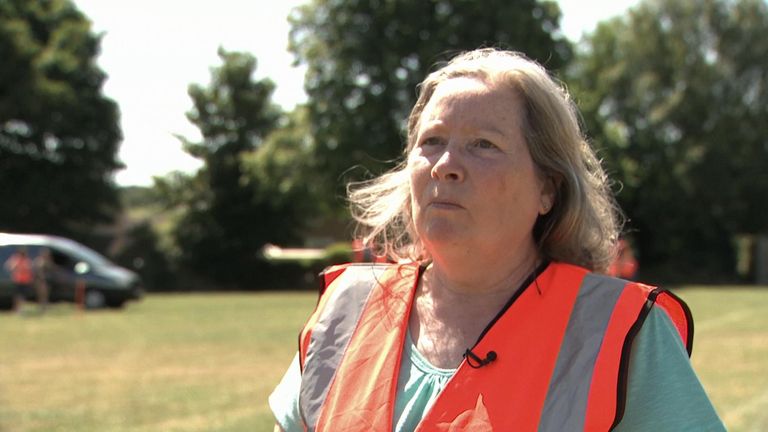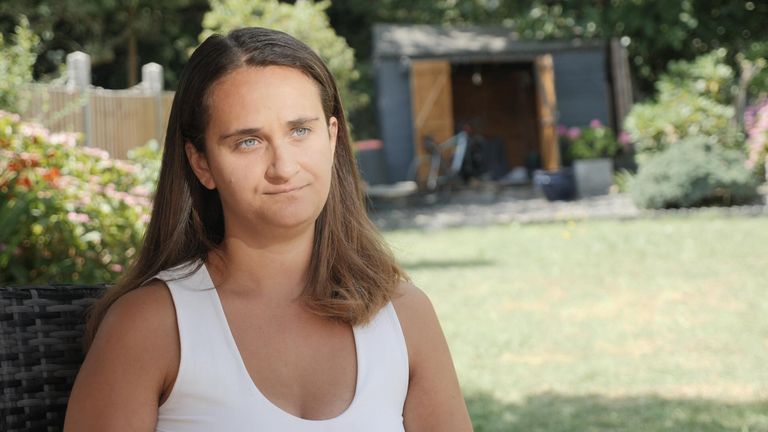The UK economy is facing a labour crisis that is affecting every sector of the economy, from agriculture to airlines, and hospitality to hi-tech industries.
At its heart is a shortage of people to do the jobs required to help the economy recover and grow after the pandemic, the product of a unique combination of low unemployment and high demand from employers that some estimate has left the economy short of a million workers.
The latest Office for National Statistics figures show there were 1.29 million vacancies in the economy, almost half a million more than before the pandemic, and more than the 1.28 million unemployed jobseekers.
By ending low-skilled immigration, Brexit has further tightened the labour market, and in the same period around 500,000 more people of working age became what the ONS calls “economically inactive”, a category covering those not in any kind of employment or looking for work.
They include those unable to work through sickness or full-time caring responsibilities, students, and early retirees. The largest group are the long-term sick, increased by long COVID, and four-fifths of them are over-50.
Discovering why this group has left the workplace, and tempting some of the almost 400,000 who remain “economically inactive” back to employment, may help ease a chronic labour shortage in the economy that the governor of the Bank of England said this week is fuelling inflation.
To understand who they are and why they can’t or won’t work, Sky News spoke to two of the “missing million”.
The retiree: ‘Live while you can’
Caroline Dodson, 63, retired in August 2020, aged 61, after COVID changed her perspective on working life.
She accessed her pension early, bought a camper van, and now spends her time travelling and volunteering in her community near Salisbury in Wiltshire.
“I’d worked for a pension company for 16 years when COVID came along, but I found working from home really difficult. The hours were longer, I didn’t have the screens and infrastructure I needed.
“So I started to think, if I don’t need to buy the things that I’m buying to go to work, what might be possible?
“I looked in my wardrobe and thought, you have enough clothes here to last a lifetime, you’re only buying more to wear to work.
“Perhaps there was a way I could access some of my pension without taking too much, and not work. I started to do the finances and realised that it was a possibility.
“So many people were dying, or getting long COVID, and I thought, live while you can, who knows what’s around the corner? And while I’m still quite active and fit, it was important to make the most of those years if I could. And so in August 2020, I gave up work.
“I had a small final salary pension scheme from a company I worked for many years ago, and then I did flexible access on another pension, just to top it up to have just enough to live on.
“I can’t be spendthrift like I was, I live quite frugally now, but I’m happy doing that. I have a little camper van and I travel whenever I can. It’s not an expensive hobby. And you would not believe the amount of people that I meet on the campsites who have done the same thing as me, taken early retirement during COVID, and there’s no regrets.
“I understand there’s a massive gap in skill and knowledge in the industry as a result. I’d been working on the product that I worked on since 1987, so that is an awful lot of experience walking out of the door.
“But if you can, please do it. Because while you’re young enough, you don’t actually need a lot of money, so if you can do without, then you have the freedom. And that is the best medicine in the world.”
The long COVID sufferer: ‘It’s heartbreaking’
Nicola Demosthenese, 26, is a music therapist.
She is employed by an NHS Trust, helping children and young people with complex needs including autism, learning disabilities and mental health issues.
After contracting COVID-19 in 2020 she was diagnosed with long COVID last year, and was forced to give up work entirely in April.
“Before COVID I was ambitious, curious, I loved learning, I loved socialising, I’m a Greek-Cypriot, so it’s in my blood. I spent time with friends, I was part of a cycling club, every Saturday I would ride 40, 50, 60 miles, and not long before I got COVID I did a 100-mile bike ride for charity.
“I was young, healthy and active, and then I got COVID. I remember at day 10 I was allowed out of my house and I went for a walk.
“Halfway into the walk, I felt this gust of energy hit me that ripped every part of energy out of me. I struggled to get home, and when I did, I collapsed in my bed. And from that point I never got better.
“I had joint pain, I had headaches every single day, I had brain fog, I wasn’t thinking clearly, I wasn’t able to hold my focus. This is someone who was four months off finishing a Masters and was getting distinctions in all her assignments.
“The worst part was fatigue, it’s a terrible word for describing how debilitating it is. It feels like after a night’s sleep, your body battery is only charged to 10%.
“I managed to finish the degree from home and passed with a high merit. I was very proud of myself, and after a summer holiday I started to feel better, so of course I applied for a job.
Follow the Daily podcast on Apple Podcasts, Google Podcasts, Spotify, Spreaker
“I was employed by an NHS Trust, but at the beginning of 2022 it was becoming clear to me that I was getting worse and worse, so I reduced my timetable to about three days-a-week, then to a day and a half, then half a day, then to nothing.
“It’s awful, it’s heartbreaking, it’s devastating. When I did eventually stop working, I struggled to come to terms with the fact I was not only not able to work, but even to cook for myself. I struggle even to wash my own hair.
“My friends are out there saving for houses, and I’m using my money to try and get better even if it is by one percent, because there is no real help available on the NHS, I’m spending thousands of pounds.
“I would love to go back to work. I miss my patients, I miss my colleagues, I miss doing what gives me joy. But the drive that I have that’s got me to where I was is the thing that will get me out of this. That fire in my belly still burns a little.”


